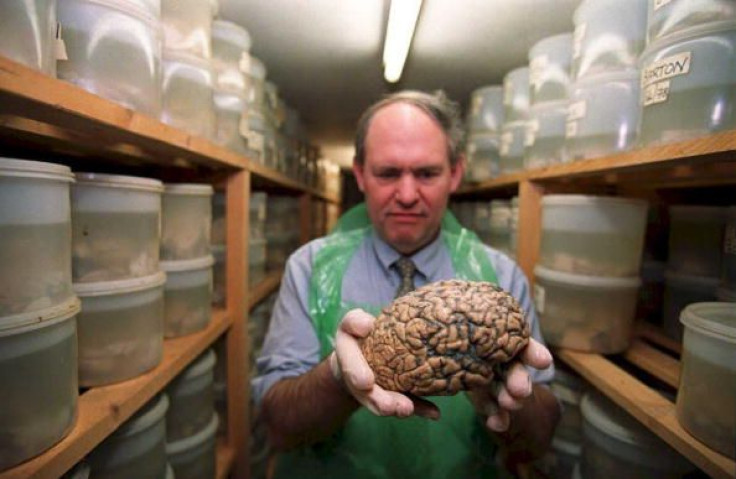How Aging Changes The Human Brain: As You Get Older, Even The Mind Becomes More Flabby

Everyone knows that our skin becomes droopy and loses elasticity with age, but do the same physical changes occur in the brain? In a new study from Newcastle University in the UK and Brazil's Federal University of Rio de Janeiro, researchers investigated the way that the human brain folds and changes as people get older.
The physical construction of the brain impacts its function. Previous studies have shown the effects of aging on cognitive function, but this study reveals that getting old also decreases the tension on the cerebral cortex, which is the outer layer of neural tissue in our minds, according to a news release by Newscastle University. Researchers said this information eventually could be used to help diagnose brain diseases.
"One of the key features of a mammalian brain is the grooves and folds all over the surface — a bit like a walnut — but until now no-one has been able to measure this folding in a consistent way,” said lead author Dr Yujiang Wang, in the release.
Researchers mapped the brain folding of over 1,000 people by examining magnetic resonance images (MRIs) of healthy minds and measuring the total grey matter surface area and thickness of the cortex, Medical Xpress reported.
The team found that the folds of our brain become more flabby or slacker. This was more pronounced in individuals with Alzheimer's disease. They also discovered that male and female brains differ in size, surface area, and the degree of folding
"This indicates that for the first time, we have a consistent way of quantifying cortical folding in humans," Dr Wang explained in the release. "More work is needed in this area but it does suggest that the effect Alzheimer's disease has on the folding of the brain is akin to premature ageing of the cortex."
Source: Wang Y, Necus J, Kasier S, Mota B. Universality in human cortical folding in health and disease. Proceedings of the National Academy of Sciences ( PNAS). 2016.
Read more:
Can You Get Sick From Eating Other People’s Brains? How Your Body Would React To Consuming Fellow Humans
Memory Can Be Strengthened Even As You Age: Neuroscientists Explain



























